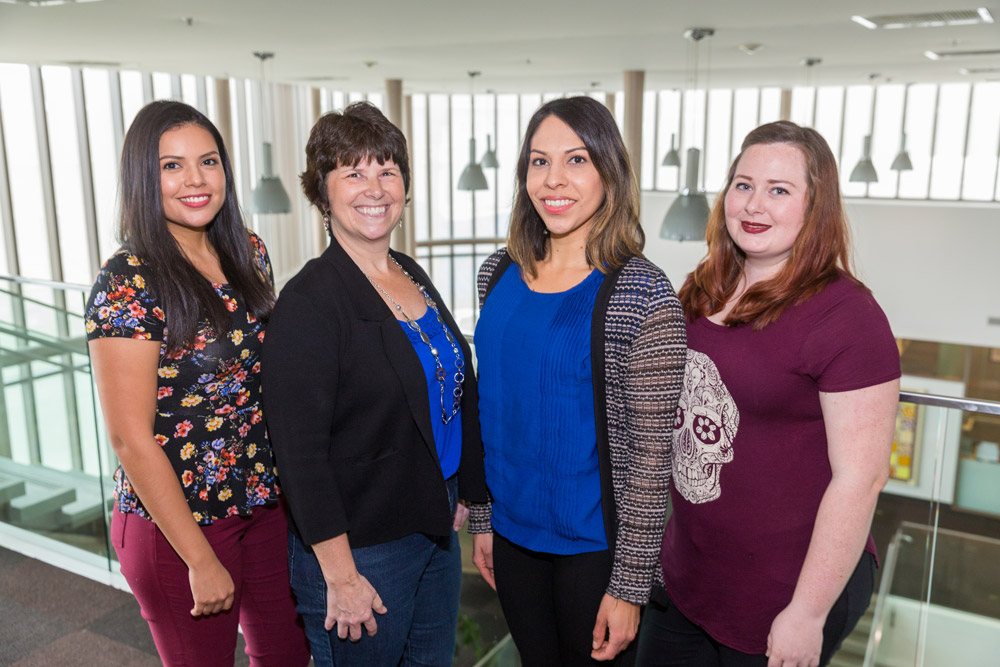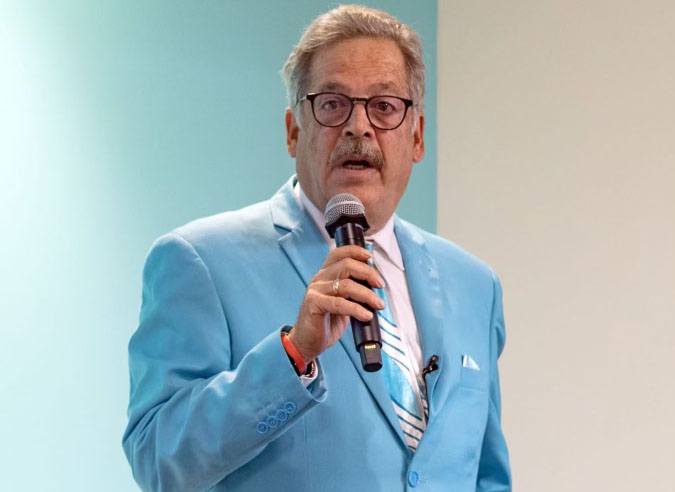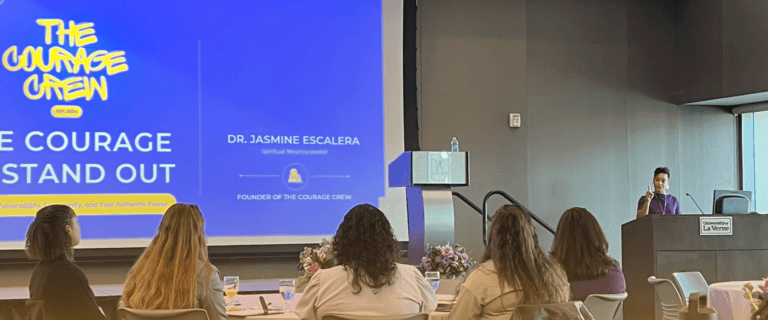University of La Verne professor, students to attend NASA Educator Institute at JPL

A University of La Verne professor and three graduate students have been selected for a NASA teaching program focused on science, technology, engineering, and math (STEM).
LaFetra College of Education Professor Valerie Beltran and students Maggie Moreno, Natalie Diaz, and Melissa Eahle will visit the Jet Propulsion Laboratory in Pasadena, Calif., in July for NASA’s Educator Institute, a one-week professional development workshop that provides future teachers with activities they can use in their classrooms.
“It’s one thing to learn about a physics concept by having someone tell you about it, but to actually do an experiment, think through and apply the concept, they are going to remember it so much better,” said Beltran.
The goal of the NASA Educator Institute is to invite students from minority-serving universities who plan to teach STEM classes to NASA field centers to learn the most advanced and innovative techniques for teaching these subjects.
“At the NASA/JPL Educator Institute, future educators will be immersed in the scientific and engineering culture of space exploration,” said Ota Lutz, an elementary and secondary education specialist at NASA/JPL. “Participants will learn from the experts, by way of tours and talks on how science and engineering is accomplished in the real world. We will then engage in lessons designed to bring this excitement into the classroom.”
The LaFetra faculty see programs like the NASA Educator Institute as helping to improve the confidence of future STEM teachers, especially after the state’s adoption of new curriculum standards that place an emphasis on application of knowledge, rather than memorization.
“The new math and science standards are much more intricate and sophisticated than previous standards. It’s been intimidating for a lot of teachers because they haven’t taught to that level or had the training,” said Beltran. “So our goal is that they are able to see more of these advanced concepts. How do we make them come alive? How do we make them accessible to students?”
Jessica Decker, director of teacher education for LaFetra, hopes that the university’s students will be inspired by being at JPL, which is the leading U.S. center for the robotic exploration of the solar system.
“It means a lot to have JPL invest in these future teachers by teaching them new strategies and working together to incorporate these activities into their future classrooms,” said Decker.


